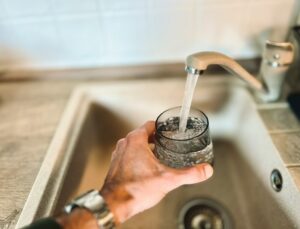Hard Water Versus Soft Water: The Impact on Your Health and Your Home

Hard Water Versus Soft Water: The Impact on Your Health and Your Home
Water is classified as either hard or soft depending on the amount of minerals that it contains. The minerals magnesium and calcium are present in large quantities in hard water. On the other hand, soft water has been treated to eliminate these elements. This is often accomplished by a process called ion exchange. Despite the fact that all options are safe to use, the distinction between the two has long-term consequences for your home as well as your own well-being.
- Indicators of Hard Water in the House
- It is difficult to get soap and shampoo to produce a lather.
- Limescale, which is a white, chalky film, accumulates on faucets, showerheads, and kettles over time.
- There are stains or streaks left on the dishes after they are removed from the dishwasher.
- After washing, the laundry seems stiff or drab.
- Clogged pipes or household appliances might cause a decrease in the flow of water.
Indicators of Soft Water in the Home
- Soap produces lather rapidly and without difficulty.
- There should be no limescale accumulating on the fixtures.
- Dishes and glasses that are cleaner and shine brighter.
- Colors remain vibrant for a longer period of time, and clothing feels softer.
- Appliances such as water heaters and washing machines will operate more efficiently.
The Impact of Hard Water on Plumbing and Appliances in the Home
When water has a high concentration of minerals, it is referred to as “hard water.” Hard water results in mineral deposits that accumulate on the inside surfaces of pipes, water heaters, and other equipment. As time goes on, this results in less efficiency, a shorter lifetime for equipment, and higher energy costs.
Difficulties with Cleaning
When glass, tiles, or bathroom fixtures are exposed to hard water, streaks and stains are left behind. In addition, it requires a greater quantity of soap and detergent in order to accomplish the same cleaning outcomes, which increases the total expenses of the family.
Fabrics and Laundry
Clothing that is washed in harsh water may feel rough to the touch and may lose its color brightness more quickly. Fabrics may also get weaker as a result of frequent washing, which can lead to a buildup of minerals.
The Effects of Soft Water on Energy Efficiency in the Home
Soft water does not cause scale accumulation, which means that appliances and heating systems are able to function with greater efficiency. This often results in a reduction in the number of repairs required and cheaper utility expenses.
Less Cleaning Effort Is Required
When soft water is used, the amount of soap and detergent that is required is reduced. Without the need for continuous cleaning, surfaces stay more clean, and fixtures keep their luster.
Improved Methods for Fabric Care
Soft water is used for washing clothing since it extends the lifespan of the apparel and makes it feel more comfortable. Detergents are more effective, which means that less of them is necessary for each use.
Impacts of Hard Water on Hair and Skin Health
Hard water contains minerals that have the potential to leave a residue on the skin and hair, which may cause dryness, irritation, and a dull look in the hair. In addition, some individuals suffer from a worsening of their eczema or other skin diseases.
Consuming water
Although hard water may not be as pleasant to drink as soft water, it includes calcium and magnesium, two crucial elements that can help to add to the amount of nutrients that one consumes on a daily basis.
Effects That Soft Water Has on One’s Health Benefits for the Skin and Hair
When soap and shampoo are rinsed away with gentle water, they are entirely removed, which results in smoother skin and softer hair. For those who have skin that is easily irritated, it offers particular advantages.
Concerns Regarding the Sodium Content
The ion-exchange technique, which is used to soften water, often results in the presence of trace levels of sodium in the water. Although the levels are often healthy, those who are following a low-sodium diet should rather use alternatives such as softeners that are based on potassium or use soft water for cleaning purposes but not for drinking.
Factors That Involve the Environment
Water with a high mineral content, or “hard water,” results in appliances having to work harder, which means that more energy is used. On the other hand, hard water needs fewer chemical treatments.
Soft water may help to minimize energy consumption and the amount of cleaning product waste, but it can also result in an increase in the amount of salt released into wastewater systems.
Selecting the Most Appropriate Water for Your Residence
- You may use a water test kit to determine the mineral levels in your water.
- Make use of water softeners: Water softeners may help to prolong the life of pipes and appliances in locations where the water is very hard.
- Selective Use: In order to strike a balance between health and efficiency, some homes use soft water for cleaning and hard water for drinking.
- Water quality may be customized via the use of alternative systems such as reverse osmosis or water conditioning equipment.
The selection of hard water vs soft water has an impact that goes beyond flavor alone. Soft water is beneficial to the skin and hair, makes cleaning simpler, and increases efficiency, while hard water results in limescale accumulation, increased energy costs, and skin irritation. Nevertheless, softened water may not be the best choice for every person since it might increase the amount of salt in one’s diet. Homeowners who understand the distinctions between water treatment methods are able to make educated judgments about these methods, which ensures that they enjoy improved comfort, efficiency, and long-term health advantages.




